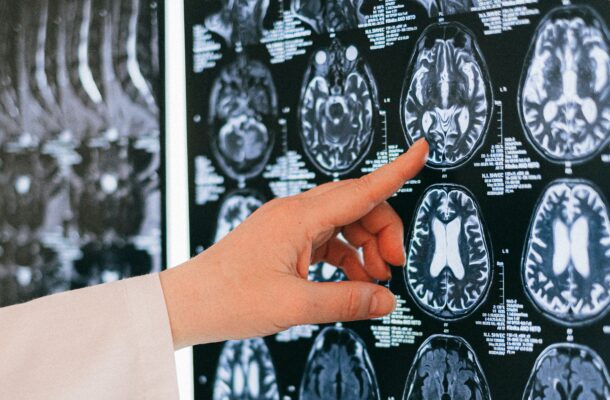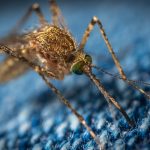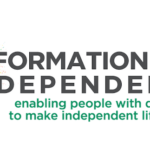What is consciousness?

The ancient Egyptians thought of the consciousness or Ka as being separate from the body and, after death, with training and guidance, able to explore the underworld, even to the extent of joining the gods. Other Eastern Mediterranean peoples also thought of a form of life, or at least thinking being after death.
The ancient Greeks thought of our thoughts and feelings as being centred around the stomach or naval area. Even Descartes thought of body and consciousness as being separate. Modern science suggests that it exists as part of the brain although some have suggested that after death, a small change of weight indicates something leaving the corpse in experiments which have not been duplicated.
Various religions have given this aspect of humanity various names, mainly psyche, soul or spirit. It is calming for many people to think that the part of themselves they know most about will continue a form of pleasurable existence after death but if we are honest with ourselves, we will never know in this life.
Philosophers have asked do animals or plants have consciousness. After the Francis Crick memorial conference in 2012, members agreed that “Convergent evidence indicates that non-human animals …, including all mammals and birds, and other creatures, … have the necessary neural substrates of consciousness and the capacity to exhibit intentional behaviours.”
Recent research has also indicated that plants can communicate via fungal filaments under the earth to indicate problems like insect or other infestation which enables neighbouring plant life to build up resistance. Does this indicate consciousness or even some sort of forward planning?
When we think of consciousness, we tend to think of recognition of self and our place in the environment. Do animals have this ability? Some can recognise themselves in a mirror, many communicate, some even develop songs, some of which indicate the history of their travels. Most biologists agree that although plants can react with the environment in quite complex ways, they cannot be thought of as conscious entities.
Input from our eyes, ears and so on, is first processed unconsciously, in dedicated sensory brain regions. It emerges into our conscious awareness only if it spreads, resulting in broader activity in various parts of our cortex, the outer layer of our brain, as well as a small structure in the centre called the thalamus.
It’s as if we become conscious of the work that our neurons do only if it is important enough to demand the brain’s wider attention. In other words our brains determine what we sense. We are controlled by our brains, not by our consciousness. Maybe it is in fact a separate entity. Maybe religion is correct and we do live for ever, after spending a short period in our bodies.
Integrated information theory is the other main idea about consciousness. It says that the amount of consciousness in any system depends on the nature of connections between its subsystems. For consciousness to arise, the network’s information flow must be complex enough to make the subsystems interdependent.
The idea has been developed more from mathematical theorising than from experimental neuroscience, although proponents say there is some supporting evidence from the fact that, in the human brain, consciousness is highly associated with the cortex, subsystems of which are structured in this interdependent way.
The contrast is stark with the cerebellum, at the base of the brain, which is involved in movement and balance rather than consciousness. It has far more neurons than any other part of the brain, but its subsystems work largely independently of each other.
According to the prediction processing theory, the brain is a probability machine that constantly makes predictions about the world and then updates them based on incoming data. The result is that we experience the world not as raw sensory inputs, but instead as a meld of such data with our predictions and expectations. This would mean we have multilayered neural networks, where predictions flow down from higher cortical layers, while error signals rise from the bottom.
If true, this might explain a puzzling group of conditions called functional neurological disorders, in which people experience profound disorders of their bodies, such as paralysis of their leg, even when tests can find nothing physically wrong with the limb. The symptoms may arise from faulty processing by their prediction systems.
Consciousness can only have biological value if it benefits the organism by changing its behaviour. In general, an evolved property of an organism can be adaptive as a result of changes to its body, or its behaviour, or both its body and its behaviour, that enhance the organism’s ability to survive, reproduce, and perpetuate its genetic material through subsequent generations.
Such changes may assist in the avoidance of predators, getting food, digestion, healing injuries, sexual function, and so on. The evolution of conscious neural structures did not involve physical changes outside of the nervous system that could confer physical advantages such as improved camouflage, quicker movement, or improved organ function.
Therefore, if consciousness is adaptive, its biological value must result from allowing improved behavioural choices for its possessors. Hence, consciousness can only have adaptive value and a biological function by virtue of its being able to influence behaviour.
In a now classic study, (Velmans, M. (1991) “Is human information processing conscious?”) examined information from a variety of sources in search of evidence of processing in consciousness, and found none. After reviewing the relevant literature, and other considerations, he reported that:
- Analysis and selection of information for entry to consciousness is unconscious—one is not aware of any of this analysis as it happens.
- Control of attention is unconscious—consciousness cannot select what is to enter itself.
- Learning and memory are unconscious processes—processes that create and retrieve memories are not accessible to introspection.
- Planning—for example, formulating ideas and translating them into a suitable form for speech are not conscious—one is only aware of exactly what one is going to say after one has said it.
- Creativity is not a conscious process.
- Organizing our responses is unconscious—we respond to a skin stimulus long before it has entered consciousness.
- Determining priorities is unconscious—what is important at any given moment requires continuous updating in a constantly changing world, and we are not aware of this occurring.
- Production of voluntary responses is unconscious—there is no awareness of any of the processing needed to execute a response.
It seems that data for entry into experience are preselected unconsciously; there was no direct evidence of data processing in consciousness—no choices or control of behaviour occur in consciousness; and, post-conscious data processing is entirely unconscious—behaviour that follows on from events in consciousness is under automatic control.
One philosopher stated that it is logically impossible to consciously choose one’s next word or one’s next experience, because they would have to be conscious already. Therefore, they are not consciously determined and must be generated by processes in the brain of which one is not conscious.
And, when trying to think of the next word to write, one is occasionally conscious of a “waiting period for the next word that will appear… an unconscious ‘incubation’ process takes place ending when the next word appears”. And, one is not conscious of the computations done by the brain, but only of its decisions or plans; Smith wrote that consciousness has no computational powers.
Another wrote, “when we consciously add two numbers together, it seems that we simply pass a request to our brain, the brain carries it out, and the answer is delivered…. When we search for an item in memory, we formulate the question in our consciousness. Unbeknownst to us, the brain seems to search for a while, and suddenly the response is made available to consciousness.”
Dehaene and Naccache wrote that “we can never be conscious of the inner workings of our cerebral processes, but only of their outputs. A classical example is syntax: we can become conscious that a sentence is not grammatical, but we have no introspection on the inner workings of the syntactical apparatus that underlies this judgement.”
He also wrote that creative insights are unexpected and appear to be involuntary; adding two numbers occurs unconsciously; highly skilled actions happen without involving consciousness such as driving a car or playing a musical instrument. He stated that “unconscious and inscrutable mechanisms create both conscious thought about action and the action, and also produce the sense of will we experience by perceiving the thought as the cause of the action”.
It appears that problem solving is unconscious—only the solution is presented to the conscious mind, and “the creator tends to have the eerie feeling that ‘It wasn’t me who did it”; “I know what I think only when I see what I write”; and that the experience of volition is not necessary for the performance of actions that would normally be considered volitional.
It seems that “we are never conscious of the inner workings of our cognitive processes, but only of their outputs.”

Alan Stevenson spent four years in the Royal Australian Navy; four years at a seminary in Brisbane and the rest of his life in computers as an operator, programmer and systems analyst. His interests include popular science, travel, philosophy and writing for Open Forum.













